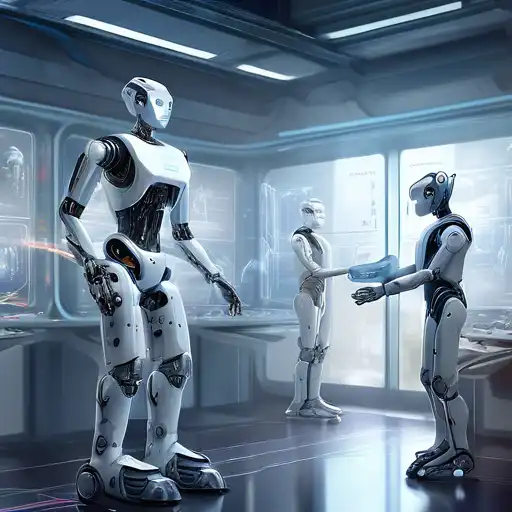The Dawn of a New Era in Robotics
The integration of Artificial Intelligence (AI) into robotics is not just an advancement; it's a revolution that's setting the stage for a future where machines can think, learn, and adapt. This fusion is transforming industries, enhancing efficiency, and opening up possibilities that were once considered the realm of science fiction.
Understanding AI Integration in Robotics
At its core, AI integration in robotics involves embedding intelligent algorithms that enable robots to perform tasks autonomously, make decisions based on real-time data, and learn from their experiences. This capability is pivotal in creating robots that can operate in dynamic environments without human intervention.
The Impact Across Industries
From manufacturing to healthcare, the implications of AI-powered robotics are profound. In manufacturing, robots equipped with AI can optimize production lines, reduce waste, and improve safety. In healthcare, robotic assistants can provide personalized care, perform surgeries with precision, and support rehabilitation processes.
Challenges and Opportunities
Despite the potential, integrating AI into robotics presents challenges, including ethical considerations, job displacement concerns, and the need for robust security measures. However, these challenges also present opportunities for innovation, regulation, and the creation of new job categories focused on robot maintenance, programming, and oversight.
Looking Ahead: The Future of AI and Robotics
The future of robotics, powered by AI, is bright. With advancements in machine learning, neural networks, and computational power, we're on the brink of creating robots that can collaborate with humans seamlessly, understand emotions, and even exhibit creativity. The possibilities are limitless, and the journey has just begun.
For those interested in the intersection of AI and robotics, staying informed about the latest developments is crucial. The synergy between these two fields is not just shaping the future of technology but also redefining what it means to be human in an increasingly automated world.
Key Takeaways
- AI integration is transforming robotics, enabling autonomous decision-making and learning.
- Industries across the board are benefiting from the efficiency and capabilities of AI-powered robots.
- While challenges exist, they offer avenues for growth and innovation in the tech sector.
- The future holds promise for even more sophisticated collaborations between humans and robots.
As we stand on the cusp of this technological renaissance, it's clear that the integration of AI into robotics will continue to be a cornerstone of innovation. The journey ahead is not without its hurdles, but the potential rewards for humanity and the planet are immense.
